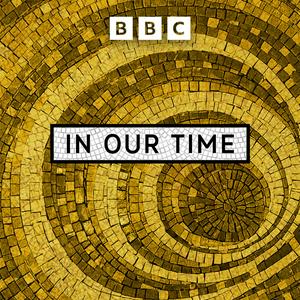Germinal (Archive Episode)
Melvyn Bragg and guests discuss Emile Zola's greatest literary success, his thirteenth novel in a series exploring the extended Rougon-Macquart family. The relative here is Etienne Lantier, already known to Zola’s readers as one of the blighted branch of the family tree and his story is set in Northern France. It opens with Etienne trudging towards a coalmine at night seeking work, and soon he is caught up in a bleak world in which starving families struggle and then strike, as they try to hold on to the last scraps of their humanity and the hope of change. With Susan Harrow Ashley Watkins Chair of French at the University of Bristol Kate Griffiths Professor in French and Translation at Cardiff University And Edmund Birch Lecturer in French Literature and Director of Studies at Churchill College & Selwyn College, University of Cambridge Producer: Simon Tillotson Reading list: David Baguley, Naturalist Fiction: The Entropic Vision (Cambridge University Press, 1990) William Burgwinkle, Nicholas Hammond and Emma Wilson (eds.), The Cambridge History of French Literature (Cambridge University Press, 2011), particularly ‘Naturalism’ by Nicholas White Kate Griffiths, Emile Zola and the Artistry of Adaptation (Legenda, 2009) Kate Griffiths and Andrew Watts, Adapting Nineteenth-Century France: Literature in Film, Theatre, Television, Radio, and Print (University of Wales Press, 2013) Anna Gural-Migdal and Robert Singer (eds.), Zola and Film: Essays in the Art of Adaptation (McFarland & Co., 2005) Susan Harrow, Zola, The Body Modern: Pressures and Prospects of Representation (Legenda, 2010) F. W. J. Hemmings, The Life and Times of Emile Zola (first published 1977; Bloomsbury, 2013) William Dean Howells, Emile Zola (The Floating Press, 2018) Lida Maxwell, Public Trials: Burke, Zola, Arendt, and the Politics of Lost Causes (Oxford University Press, 2014) Brian Nelson, Emile Zola: A Very Short Introduction (Oxford University Press, 2020) Brian Nelson (ed.), The Cambridge Companion to Emile Zola (Cambridge University Press, 2007) Sandy Petrey, Realism and Revolution: Balzac, Stendhal, Zola, and the Performances of History (Cornell University Press, 1988) Arthur Rose, ‘Coal politics: receiving Emile Zola's Germinal’ (Modern & contemporary France, 2021, Vol.29, 2) Philip D. Walker, Emile Zola (Routledge, 1969) Emile Zola (trans. Peter Collier), Germinal (Oxford University Press, 1993) Emile Zola (trans. Roger Pearson), Germinal (Penguin Classics, 2004)
Spanning history, religion, culture, science and philosophy, In Our Time from BBC Radio 4 is essential listening for the intellectually curious. In each episode, host Melvyn Bragg and expert guests explore the characters, events and discoveries that have shaped our world.


